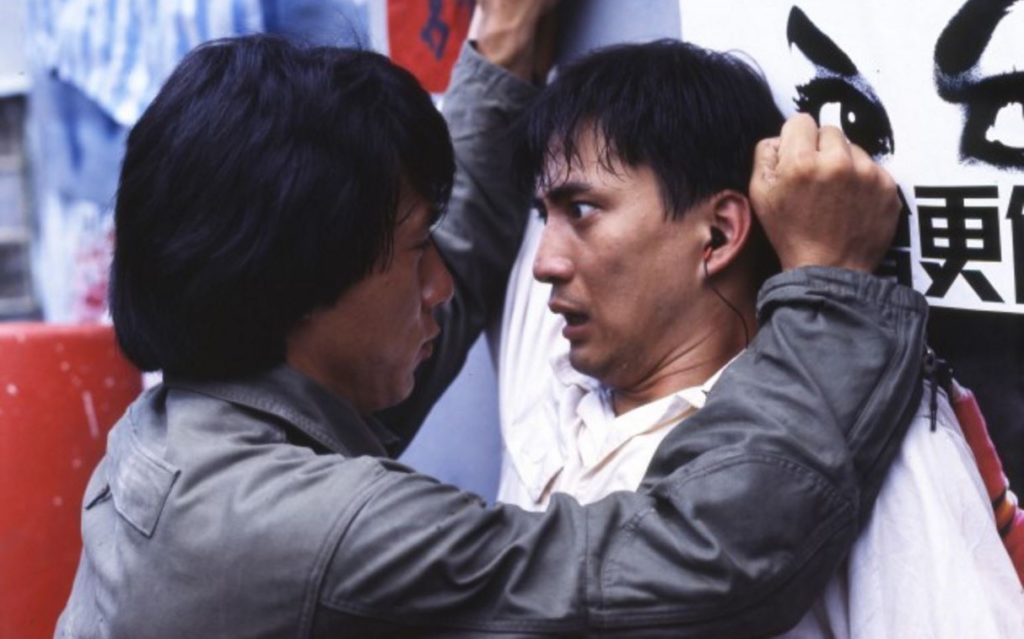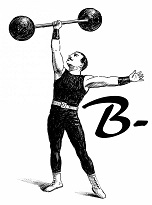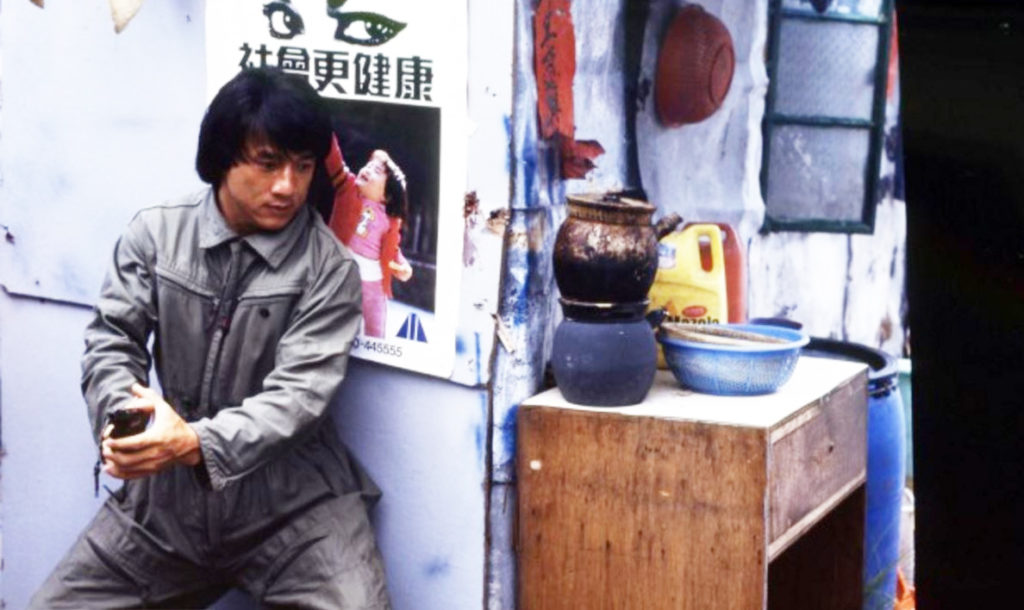The release of “Police Story” on December 14th, 1985 established Jackie Chan as one of the top action stars in the world. Written, directed by, and starring Chan, the film was a huge hit in East Asia, winning ‘Best Film’ at the 1986 Hong Kong film awards. Today, it remains one of Jackie Chan’s best films, showcasing a master stuntman at the peak of his power.
The film starts and ends with phenomenal action sequences – the first features a police raid, the complete destruction of a village, and Chan hanging from a double decker bus by an umbrella, while the final fight is an extended piece of spectacular stunt choreography where the stunt team seems fixated on breaking as much glass as possible, usually with their own bodies.
The climax also contains what may be Chan’s most famous stunt – a slide down a 100-foot pole through electrical lights and sheets of glass, giving Chan second-degree burns on his hands and a dislocated pelvis. Few, if any, action stars would be willing to literally risk their lives in the way that Chan does in this film.
However, though the movie excels in action, it lacks in plot. As is common with many of Chan’s movies, the plot exists merely as a foundation upon which Chan and his stunt team can build the mixture of spectacular action pieces and slapstick comedy that is the core of many of his films. The story follows police officer Kevin Chan, as he attempts to bring down a crime ring by simultaneously protecting and seducing a beautiful witness, while still maintaining his relationship with his current girlfriend and clearing his name as a suspect in a murder. If this sounds convoluted, that is because it is. The film never really resolves a number of the plot points that it introduces and features every cliché from a misunderstood cop-on-the-run to a cake-in-the-face surprise birthday party mix-up.

This points to another weakness of the movie, which is that the film never really decides what type of movie it wants to be, floating somewhere between an intense action crime film, a slapstick comedy, and a wacky romantic drama. Chan is a master at combining action and comedy in stunts, fight scenes, and prop humour (Chan’s telephone mix-up scene takes notes from slapstick actors like Charlie Chaplin).
However, this genre mash-up takes away from the seriousness of the film. A scene where Chan steps in poop and cleans his shoes with a moonwalk dance sequence should not exist in the same movie where he delivers one of his most visceral monologues, screaming at his superiors while on the verge of tears. However, if the audience is able to disconnect the slapstick sequences from the intense action scenes, both can be very enjoyable to watch.
The heart of this film is Chan’s ability as an action star and stunt choreographer and Chan uses every opportunity to wow the audience with how much he can and is willing to do. He exceeds any expectations by a mile, risking life and limb to perform some of the most phenomenal action and stunt work ever captured on film. Though not without its flaws, this film is essential viewing for any fan of stunts, action-comedy, or Jackie Chan.
-by Kieran Davey


